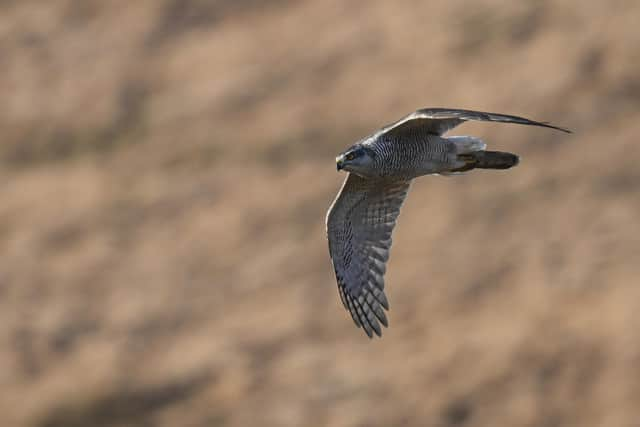Birds of Prey UK: Peak District initiative to save rare birds folds after failure to improve population numbers
and live on Freeview channel 276
The Peak District Bird of Prey initiative was created in 2011 with the goal of restoring population for many vulnerable species to levels last seen in the 1990s. The pledge saw landowning groups, gamekeepers, experienced raptor surveyors, conservation groups and even the police sign on to make a difference.
Now, the initiative is set to close after 10 years because the scheme is, by its members’ own admission, “no longer able to deliver meaningful change” and seeing “no improvement at all” for some species.
Advertisement
Hide AdAdvertisement
Hide AdThe project’s operators, the National Park Authority, said in a statement: “Despite more than a decade of the initiative [...] populations of many of the key species have not increased at the rates initially hoped for with some seeing no improvement at all.”


The group says despite some successes, direct persecution of birds – shooting, poisoning, trapping, nest destruction and the disappearance of satellite-tracked birds – continue to happen every year, and is calling on meaningful nationwide efforts to fight against these crimes. This includes when two rare hen harriers and 10 eggs were lost by suspected grouse poachers.
Some of the group’s goals initial included restoring the number of iconic species such as the peregrine, goshawk, merlin – the UK’s smallest raptor – as well as the hen harrier, one of the most persecuted birds of prey in the country. A supporting cast of other raptors includes the short-eared owl, with increasing sightings of red kites and ospreys.
But the authority now says: “Whilst hen harriers have returned to the area, successful breeding currently remains limited.
Advertisement
Hide AdAdvertisement
Hide Ad“Those involved in the annual surveying of raptors within the study area – largely comprising the National Park’s ‘Dark Peak’ uplands, have recently stated they no longer felt they could continue supporting the group. The RSPB stepped down as a member of the initiative in 2018.”
Phil Mulligan, chief executive of the Peak District National Park Authority, said: “It is with regret that we are closing the initiative after more than a decade of endeavours to safeguard our charismatic birds of prey that have a rightful place here in the National Park.
“Featuring at the very top of local ecosystems, these species like the hen harrier, peregrine and goshawk should be a flagship for landscapes and habitats at the heart of nature’s recovery.
“The fact that the work of the initiative has failed to reflect those target populations of some 30 years ago remains a cause for real concern, and it is without question that illegal persecution targeted towards some of these species is one factor behind this stuttering progress.
Advertisement
Hide AdAdvertisement
Hide Ad“I would like to extend my thanks to those who have put their time, energies and passion into the painstaking study, sharing of information and analysis of our raptor populations during the initiative’s existence, but we must now look at alternative ways to ensure our birds of prey have a future in the Peak District - free from the risk of illegal actions.”
The Authority has confirmed that it will continue working with a range of local stakeholders on priority actions for the future of birds of prey in the Peak District.
Comment Guidelines
National World encourages reader discussion on our stories. User feedback, insights and back-and-forth exchanges add a rich layer of context to reporting. Please review our Community Guidelines before commenting.
